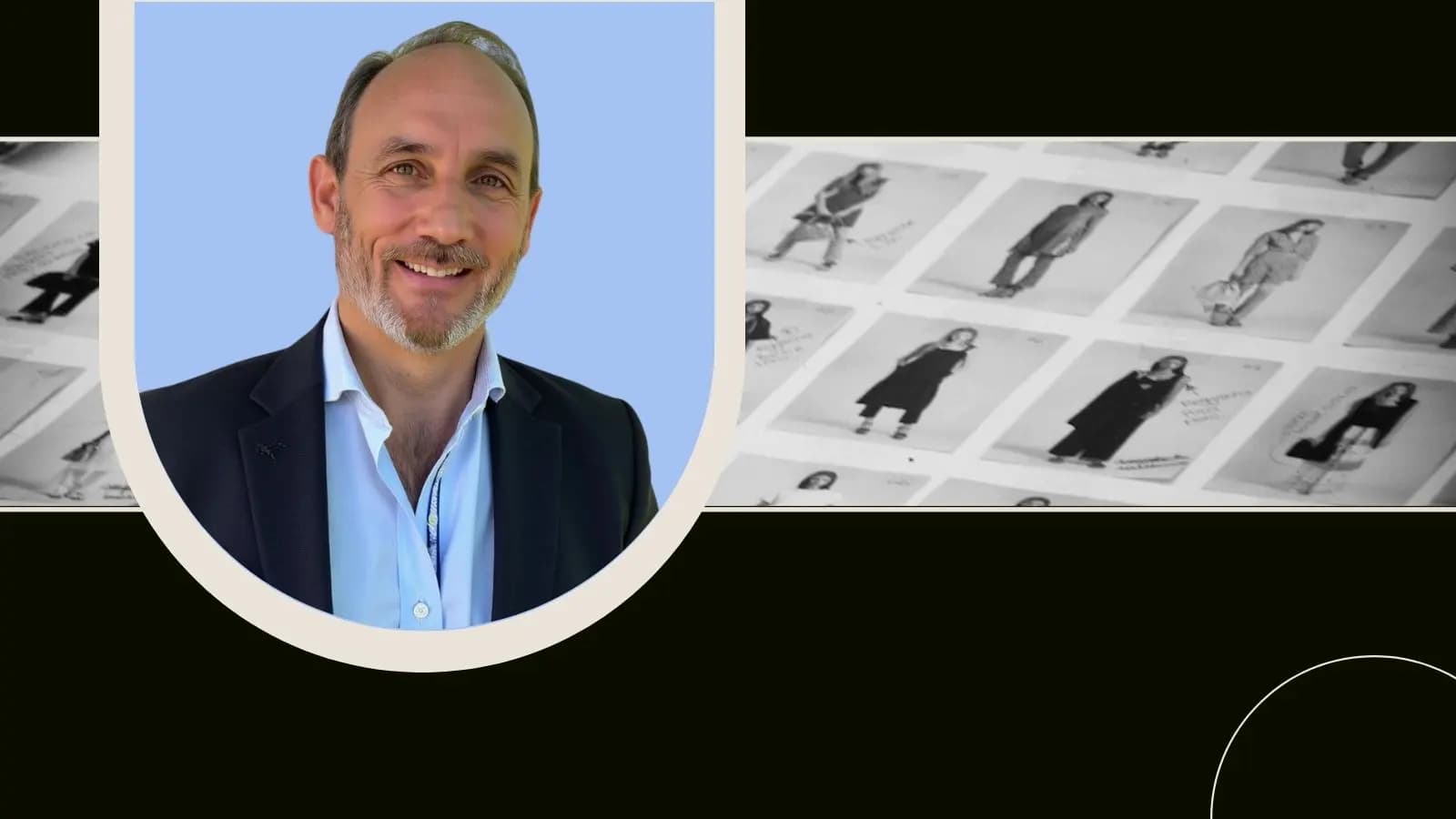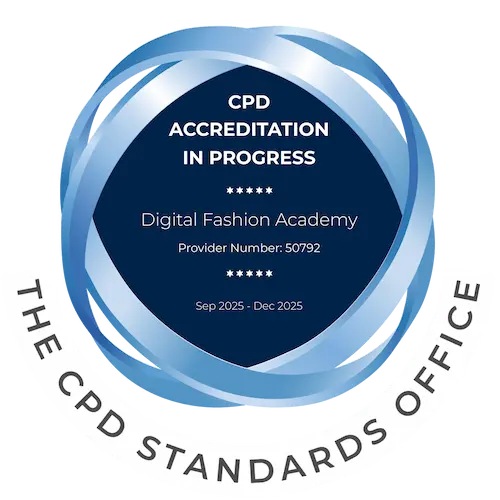Fashion Management Course
Designed & created by leading fashion professionals.
Gain essential fashion management skills to boost your career.
This fashion business management online course introduces the key concepts of the fashion industry, focusing on company organisation, business models, and the impact of digital technologies. It starts with a high-level overview to give you a clear and complete understanding of how fashion companies operate and compete in international markets.
Drawing from the real-world experience of Fashion and Luxury industry professionals, the fashion management course offers essential knowledge for anyone working, or planning to work, in the fashion and luxury sectors. You will learn the main principles of fashion business management, including production and distribution processes, and standard management practices used across the industry.
By the end of this fashion management course, you will have a solid understanding of the fashion business, including essential processes, timelines, and the key revenue drivers of successful fashion brands.
.

Next start date
⇢ Start any time: immediate access, enrol and start learning
COURSE DURATION
⇢ 4 Hours
Delivery format
Online On-demand, Q&A Online Practice with teachers feedback Language: English Subtitles: English and Italian
Course Price
€ 167
Certification
Certificate of attendance
COMMITMENT
4 hours
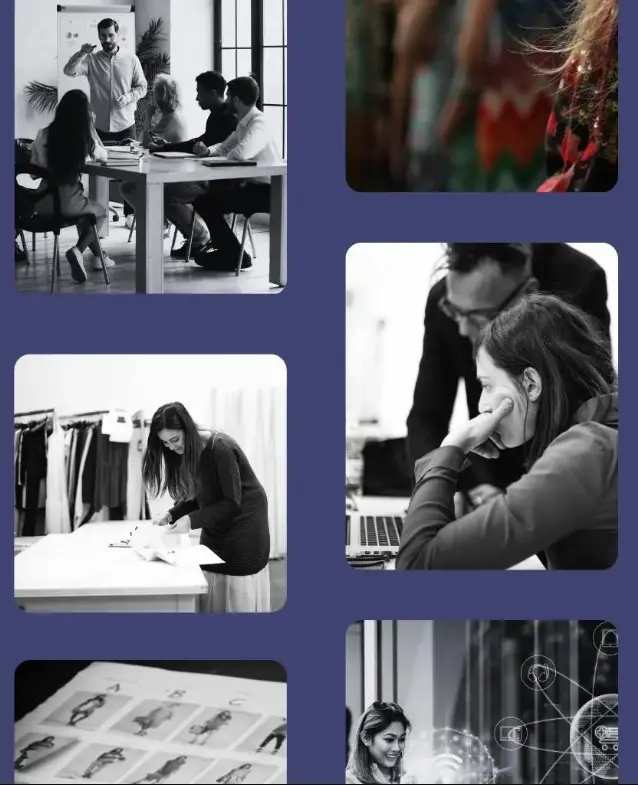
Why take the fashion business course
Whatever role you take on in the fashion industry, a solid understanding of how the business works is essential. Whether you are an entrepreneur, a manager or a consultant, by taking this fashion management course you’ll gain the essential knowledge you need to succeed.
- Acquire the ability to carry out your work consistently with the brand positioning of the brand you work for
- Gain a deeper understanding of key fashion management principles, enabling you to interact and collaborate effectively with colleagues from different functions
- Be able to envisage and discuss strategic activities for your brand or company, that are in line with your brand positioning
Fashion Management Course Programme
Module 1: Brand Management, Market Positioning, Business Models and Distribution
- The Fashion & Luxury Market Positioning Pyramid: Explanation of the pyramid and its segments
- Price, Quality, and Perceived Quality: Discussion of the differences and their impact on brand perception.
- Brand Positioning Strategies: How companies use price and style to differentiate their brands.
- Case Study: Armani: Analysis of Armani’s brand portfolio and market positioning.
- Fashion business models, market structure, sales channels, brand positioning and product lifecycle
Topics include: Fashion business models, market structure, sales channels, brand positioning and product lifecycle
Module 2: Fashion Companies Structure
- Explanation of the organisation hierarchy: the role of CEO, Executive Board and Departments.
- Key Departments of a Fashion Company: Overview of Design & Production, Sales, Marketing (including e-commerce), and IT
Module 3: Sales Channels & Business Models
In this module we’ll explore how fashion brands approach markets and distribution of their products to implement the right mix of wholesale, retail and digital sales channels. You’ll also learn how different georaphic markets require specific commercial solutions.
- Market positioning within the fashion and luxury industry, different business models, and traditional distribution channels
- Traditional Sales Management in the Fashion Industry: wholesale and direct to consumer (DTC)
- Direct Sales: Advantages (control, margin) and disadvantages (investment, risk)
- Licensing: Advantages (scalability, lower cost) and disadvantages (less control, data access)
- Hybrid Systems: Overview of concession partnerships and joint ventures
- Business models and sales channels for internationalisation and cross border
- Distribution Channels and E-commerce Integration: How e-commerce integrates with traditional retail and wholesale channels, creating omnichannel experiences
Module 4: Pricing
- How fashion companies determine pricing for products, pricing strategies and pricing techniques
- Top down and bottom up pricing techniques
- Margin target
- Competitors analysis and brand positioning
Are you looking for training for your brand or your company? The digital marketing course can be tailored to your needs. For more information please contact us.
Fashion Management Learning Outcomes
After completing this fashion management course, participants will be able to:
- Understand the essential organisational structure of a fashion company and who does what within a fashion company
- Identify the key departments within a fashion company and their roles.
- Explain the evolution of e-commerce within fashion company structures
- Understand the Fashion & Luxury market positioning pyramid and the different segments
- Explain the relationship between price, quality, and perceived quality
- Describe how fashion brands companies use price and style to position their brands
- Analyse Armani’s brand positioning strategy.
- Understand traditional and digital commercial business models (direct sales, licensing)
- Describe hybrid commercial structures like joint ventures and partnerships
- Understand how fashion brands determine product prices
Fashion Business Management certification
Get your certification with this Fashion Business Management course
Obtaining a fashion certification will help you to stand out in the fashion professionals industry and will help you to improve your career. This Fashion Management course offers you the opportunity to acquire a certificate to help you stand out and boost your career and your business.
DFA Certificates and Digital Badges are a recognition of the effort and dedication you’ll put into this significant journey, verifying your knowledge and new skill set.
You can share it with the world through your social profiles and have the opportunity to showcase your involvement to potential employers, friends, and family.
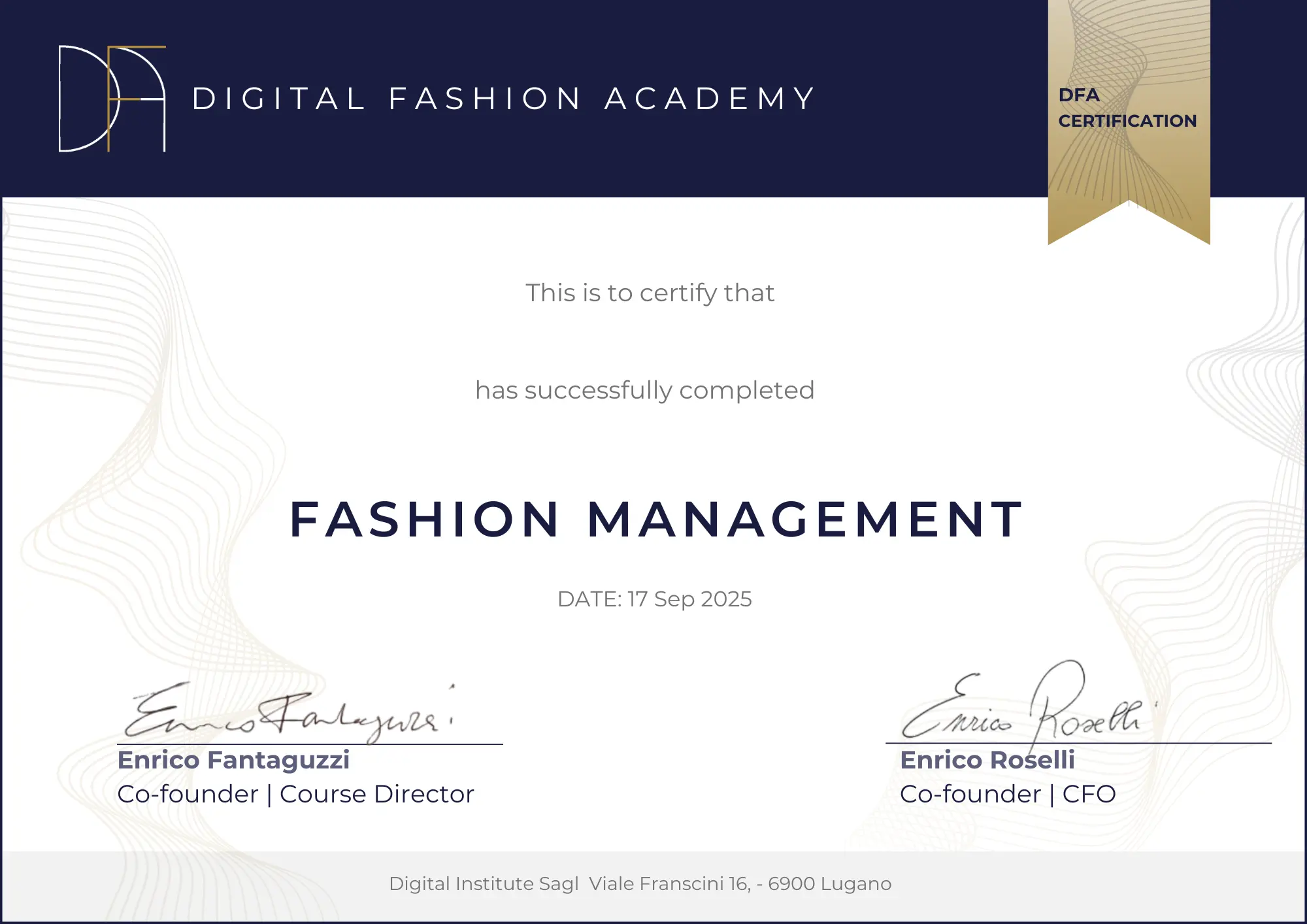
CPD Standards Accreditation in progress
Accredited Visual Merchandising Course
Accreditation in progress.
This course is currently undergoing accreditation with The CPD Standards Office, the UK based, international research-led accreditation body for Continuing Professional Development.
This visual merchandising course is being assessed against rigorous quality standards to ensure relevance, structure, and learning impact. This badge signifies a commitment to delivering structured, high-quality learning experiences that meet CPD best practices.
Once accredited, their training will be eligible for CPD Certification and promoted through the CPDSO network.
Who is the fashion management course for?
This fashion business online course is designed for a wide range of professionals. It is ideal for those already working in fashion who want to stay up to date with the latest digital trends. It also suits newcomers who need to learn the key business processes in fashion and how companies create value.
This online course is especially useful for professionals who have recently joined a fashion company after working in other industries. It is also helpful for digital marketers from agencies or software companies who want to understand how fashion businesses work from the inside.
- Fashion brand professionals who have recently entered the fashion & luxury industry
- Agency professionals and service providers who want to provide higher value to their clients
- Fashion Professionals looking to update their skills
- Entrepreneurs or fashion designers who need to grasp the fundamentals of contemporary fashion business
- Graduates who are starting a career in fashion industry
Fashion Management instructors
Meet the senior experts who teach the Fashion Management Course.
Meet your instructors
Meet the Managers who contributed to this Fashion Ecommerce Course. Learn from senior fashion & luxury professionals actively working in top brands. Gain expert insights remotely from industry leaders, agencies, and tech innovators.

Enrico Roselli
Enrico Roselli, formerly CEO of La Martina, the iconic luxury sportswear polo brand.

Enrico Fantaguzzi
Co-founder DFA. Formerly digital manager at Gucci, Tod’s, 7 For All Mankind, Paul & Shark, Woolrich, Yoox.
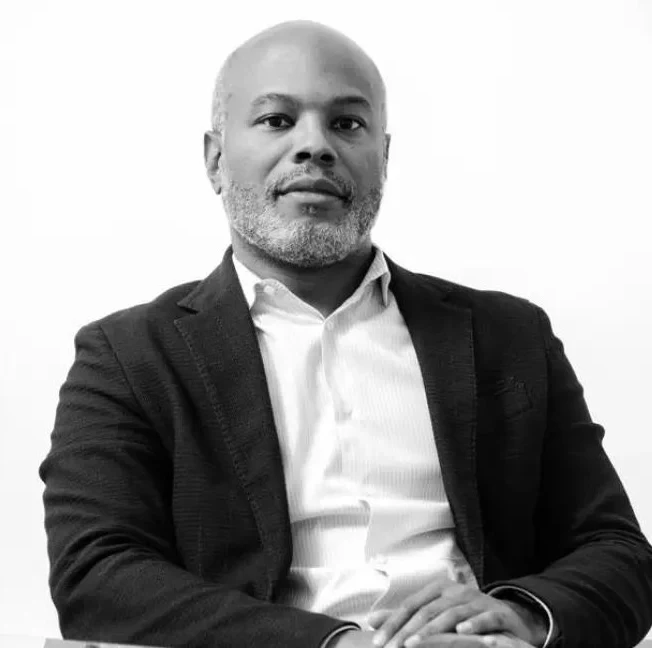
Gilles Gaucher-Cazalis
MD of SpectR Consulting, Formerly CFO and Finance & Operations Management at Philipp Plein and Michael Kors.
What our students say
Our students appreciate the hands-on training, the networking opportunities and the experience brought by senior fashion & luxury managers.

Beatriz
Fashion Designer
Great Course
“I found the course very interesting. As a professional in the sector, there were many things I knew but I didn’t know why I knew them (or what was the correct term to refer to them, for example, white label garments), so I can say that it has enriched me and I thank you for it. .”

Lija
Ecommerce Merchandising Specialist at Gucci
Recommended
“As this is my first dive into a professional approach to brand creation, every knowledge and input is a source of my fashion career foundation. I have created my brand Silky Unique, and the course arrived just “in time” when I needed to focus on positioning, distribution, and pricing strategies. Every bit of information is a treasure.”

Gabriella
Ecommerce Manager at Kocca
Rich and Complete
“For those who want to deepen and enrich their skills and knowledge, the ecommerce management course was rich, complete, suitable both for those who are approaching the digital world and for those who area already part of it”
FAQs Fashion Management Online Course
Can I start anytime?
You can start at the any time and study when you want as the course is avaialble on-demand with asynchronous feedback. On-demand course with asynchronous feedback means that students can study the topics at their own pace and convenience, while also receiving feedback on their progress or work at a different time, via email. This approach combines the flexibility of on-demand learning with the benefits of tailored feedback for improved learning outcomes.
I’m a fashion designer is this course suitable me?
This course is recommended for fashion designers, product managers and other professionals who need to acquire a 360° view on sales and brand positioning processes of fashion brands. The course includes a deep dive on pricing for fashion and luxury products.
Is there a certification at the end of the course?
Yes. Upon successful completion of the course, you’ll obtain the Certification of attendance of the course. You can share your certificate on your LinkedIn profile and add it to your CV.
I’m a professional with a busy schedule, is the attendance to the course flexible?
The attendance is flexible, you can attend anytime and anywhere within 6 months from enrolment.
How long does it take to complete the fashion business online course?
The estimated time to complete the course is less than 4 hours. The time that you actually spend on the course it depends on you, some people like to watch the videos more than once in order to better acquire the notions, the nuances and reflect on the learnings.
How can I enrol in the fashion business online course?
To enrol in this course you just need to buy the course online and you’ll receive the user name and password to access the course shortly after.
What is the teaching methodology? Will I learn practical skills from this course?
The teaching methodology is based on the work of industry professionals, working in fashion companies, e-tailers and agencies, who share their best practices and work experiences. Therefore you’ll acquire a view of real work situations in this course. The typical lessons consists of:
– Objectives of the professional roles or functions;
– Management control: monitoring of results and KPIs;
– Toolbox: learn about the tools and software used by the professionals;
– Analysis of best practices and case studies of Fashion & Luxury Brands;
– Processes and guidelines implemented in fashion companies;
– Consolidation: exercises, reflection activities and/or quizzes.
In which languages are the lessons available.
The lessons are available in English and Italian.
What are the benefits of taking the fashion management course?
The course is designed by fashion and luxury professionals to meet the real needs of fashion and luxury companies;
Participants can interact with teachers and our community during the course and after;
The course allows you to study flexibly from anywhere from any device;
You’ll be allowed to join a global community of fashion professionals around the world.
